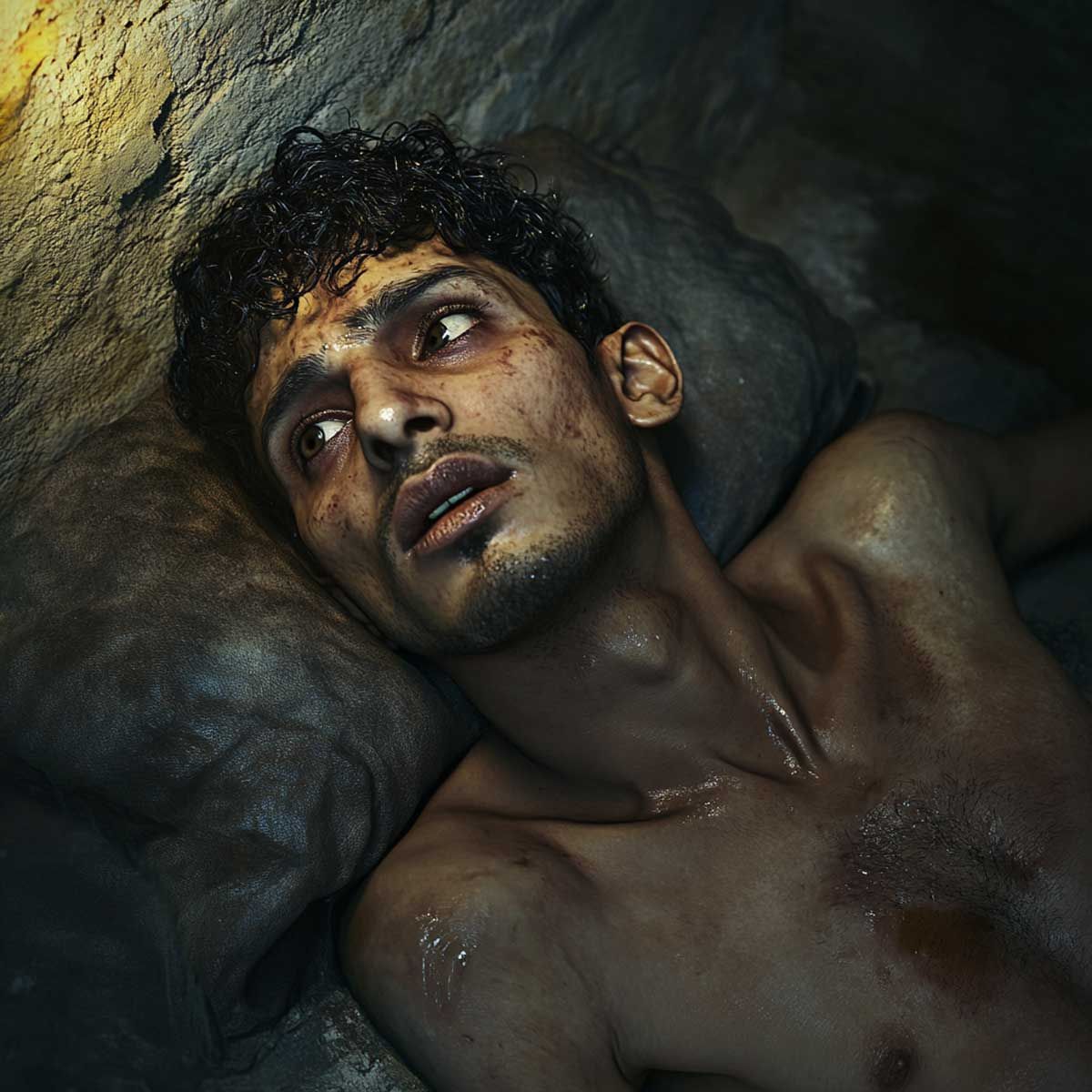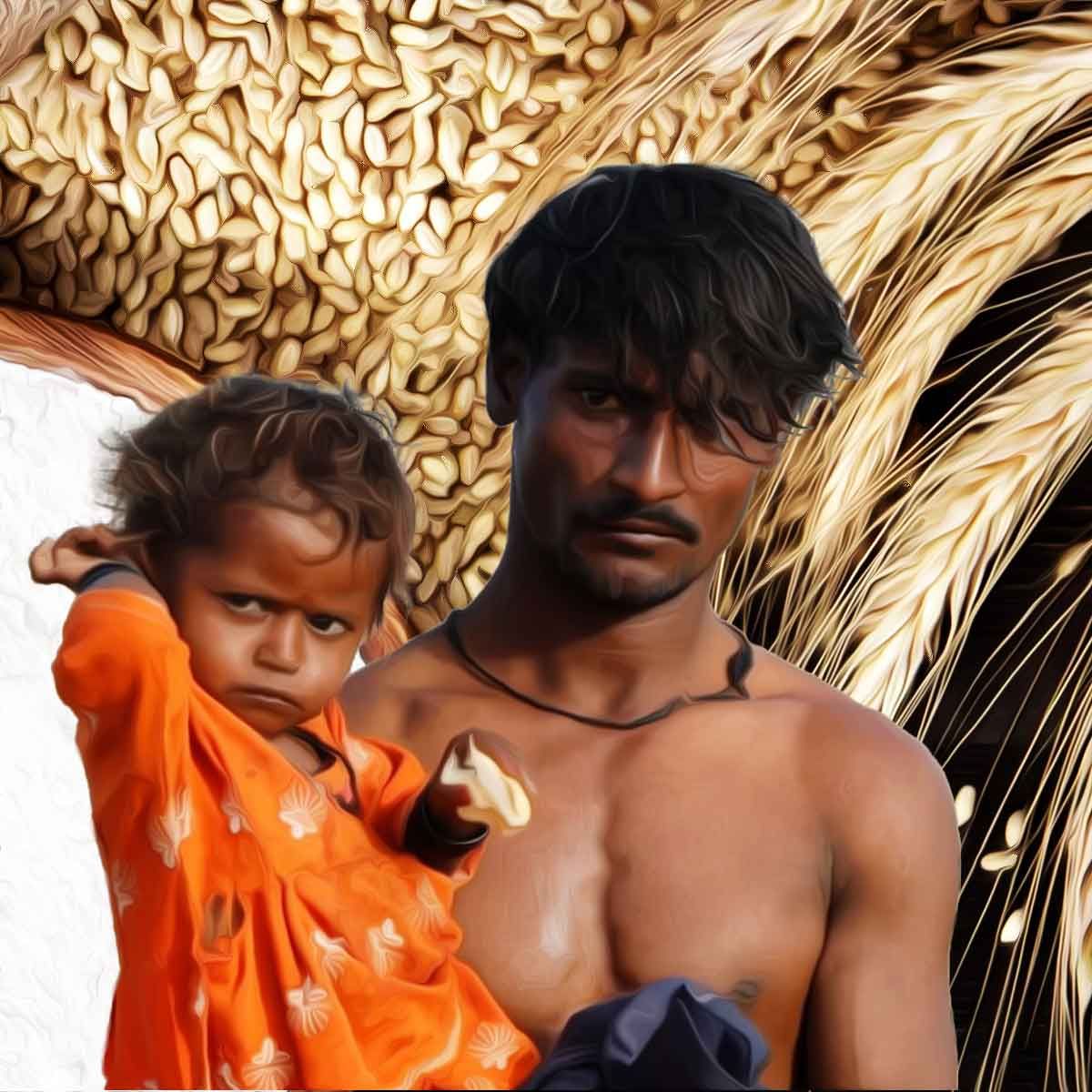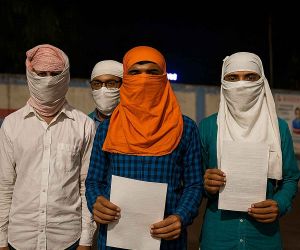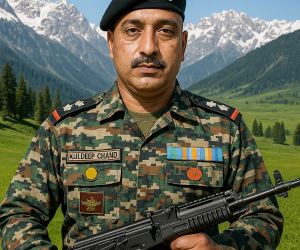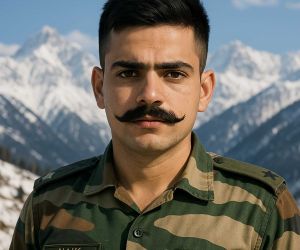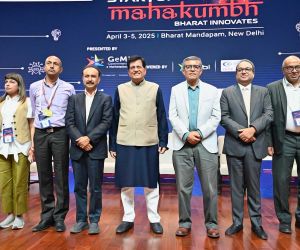MORE COVERAGE
Twitter Coverage
Satyaagrah
Written on
Satyaagrah
Written on
Satyaagrah
Written on
Satyaagrah
Written on
Satyaagrah
Written on
JOIN SATYAAGRAH SOCIAL MEDIA
Amid deteriorating India-Canada relations, EAM Jaishankar underscores the paramountcy of diplomat safety in Canada, citing violations of the Vienna Convention, emphasizes potential visa resumption contingent on diplomats' safety assurance in Ottawa
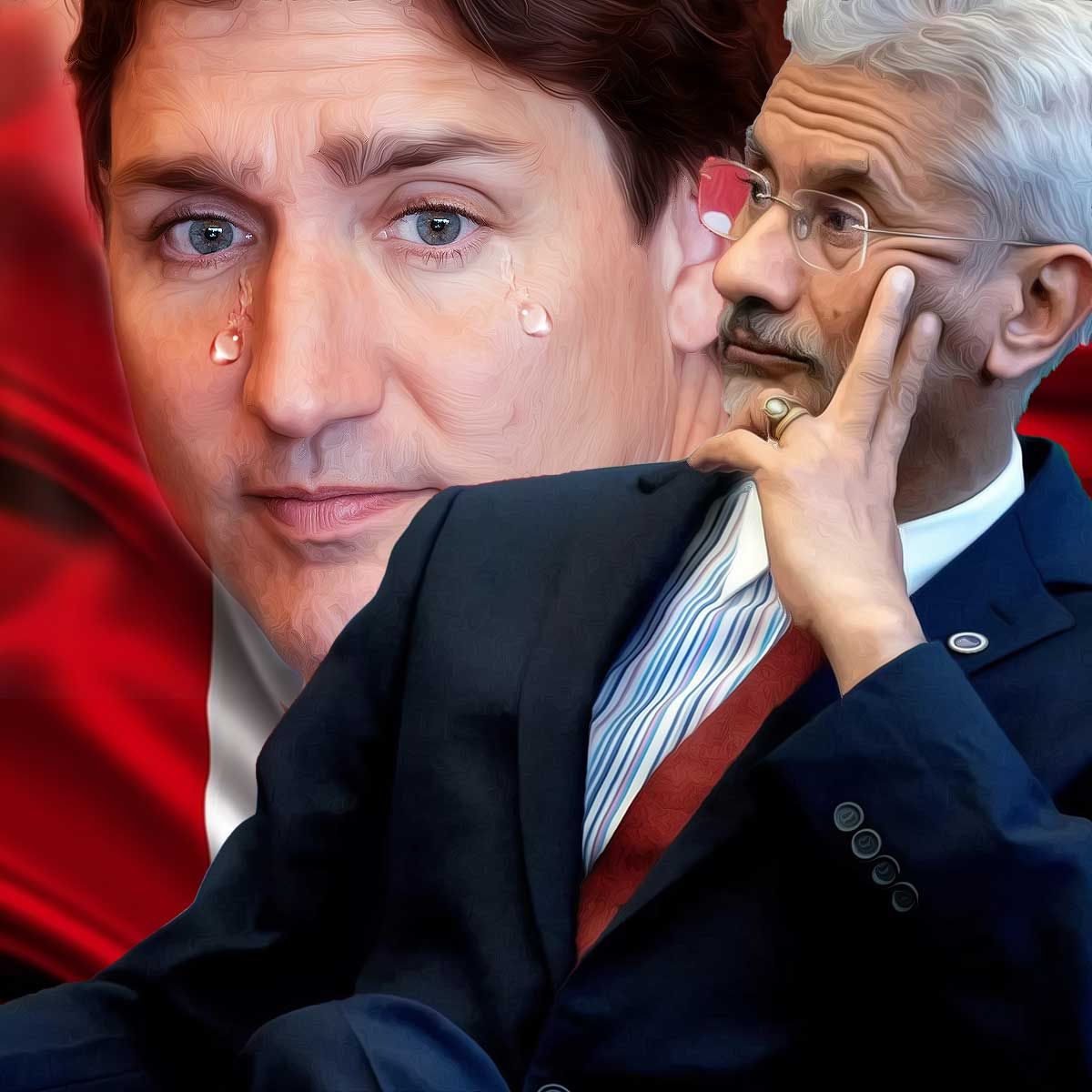
22nd October - A cloud of tension seems to hover over India-Canada diplomatic relations. The External Affairs Minister, Dr. S Jaishankar, recently shed light on the growing strains between the two nations. While addressing the audience at the Kautilya Economic Conclave, he candidly expressed that the bilateral ties are currently in a "difficult phase."
|
The main point of contention appears to be some perceived interference by Canada in India's internal affairs. In response to these challenges, India made a significant move by halting visa services in Canada. Furthermore, a request was made to Canada to downsize its diplomatic representation in India.
Dr. Jaishankar specifically pointed out issues with "certain segments of Canadian politics" as a factor contributing to the strain. The unfolding events indicate a need for open dialogue and understanding to ensure the long-standing relationship between the two countries remains intact.
|
Safety First: EAM Jaishankar Highlights Security Concerns for Indian Diplomats in Canada
External Affairs Minister, Dr. S Jaishankar, raised a crucial alarm on the safety of Indian diplomats in Canada. He pinpointed a clear violation by Canada of the Vienna Convention, which mandates the security and protection of foreign diplomats. Expressing his concerns, he stated, “the big concern which people have is on visas. And, you know, some weeks ago, we stopped issuing visas in Canada, because it was no longer safe for our diplomats to go to work to issue visas. So their safety and security was the primary reason we had to temporarily stop the issue of visas.”
Such a move by India, a nation known for its diplomatic prudence, underscores the gravity of the situation. The halt in visa services is not just a procedural step but a direct reflection of the lack of confidence in the safety provisions extended to Indian diplomats in Canada.
However, Dr. Jaishankar also gave a glimmer of hope, suggesting that the government is actively monitoring the situation. He expressed optimism, saying, “We’re tracking it very closely. My hope, My expectation is that the situation would improve, in the sense that our people would have greater confidence in being able to do their basic duty as diplomats.” Emphasizing the significance of the Vienna Convention, the minister reiterated that “ensuring safety and security of diplomats is the most fundamental aspect of the Vienna Convention.”
|
 |
| EAM Jaishankar on Vienna convention: - Canada "challenged" Vienna convention by not able to ensure safety of Indian diplomat |
The situation serves as a reminder that diplomatic relations are not just about policies and treaties but also hinge crucially on mutual respect and safety assurances. It's now a waiting game to see if Canada addresses these concerns, restoring faith and confidence.
External Affairs Minister, Dr. S Jaishankar, continued to spotlight the safety concerns surrounding Indian diplomats in Canada. He emphasized, “In Canada, our diplomats are not safe. So if we see progress there, I would like very much to resume the issue of visas. My hope, this is something that should happen very, very soon.” The minister's repeated emphasis on the safety of Indian personnel underlines the gravity of the situation.
Dr. Jaishankar also delved into India's decision to ask Canada to reduce its diplomatic presence by 41 personnel in the country. The underlying cause of this move was India's quest for diplomatic parity. The minister highlighted India's concerns regarding the "continuous interference" in its internal affairs by the Canadian side. He reiterated the principles of the Vienna Convention, stating, “Parity is very much provided for by the Vienna Convention, which is the relevant international rule on this.” He further clarified India's stance, saying, “In our case, we invoked parity because we had concerns about continuous interference in our affairs by Canadian personnel.”
The invocation of the Vienna Convention by Dr. Jaishankar sends a clear message about India's commitment to uphold international norms while also safeguarding its interests and ensuring the security of its diplomats abroad. The ball now lies in Canada's court to respond and work towards mending the strained relations.
|
Dr. S Jaishankar, alluded to the deeper intricacies and undisclosed information surrounding the recent diplomatic tensions between India and Canada. His statement suggested that the full spectrum of reasons behind India's recent decisions concerning Canadian diplomats in the country hasn't been unveiled to the public. He mentioned, “We haven’t made much of that public. My sense is over a period of time more stuff will come out and people will understand why we had the kind of discomfort with many of them which we did.”
This hint at forthcoming revelations adds another layer of complexity to the already intricate India-Canada diplomatic landscape. It's a clear indication that the issues at hand might be more profound than what meets the eye.
Moreover, this comes in the aftermath of Canada's recent decision to withdraw 41 of its diplomats from India. Adding to the tension, Canadian Foreign Minister Melanie Joly criticized India's recent actions, labelling them as “contrary to international law.” Dr. Jaishankar's remarks seem to challenge this narrative, suggesting that there's more to the story that needs to be unraveled.
Dr. S Jaishankar, defended India's stance by highlighting the foundational principles of the Vienna Convention on diplomatic relations. Responding to the Canadian Foreign Minister Melanie Joly's accusation of India violating the convention, he emphasized that the convention explicitly provides for 'parity'. India's decision to invoke this principle was a direct counter to the “continuous interference” from the Canadian side.
Dr. Jaishankar further underscored the importance of the safety and security of diplomats as a cornerstone of the Vienna Convention. He expressed concerns over the challenges faced by Indian diplomats in Canada, stating, “Our people are not safe, our diplomats are not safe.”
|
Despite the current strain, the minister expressed optimism about the situation, hoping for an environment where Indian diplomats can confidently execute their duties without threats to their safety.
Dr. S Jaishankar, provided a beacon of hope regarding the visa situation between India and Canada. He underlined that the resumption of visa services hinges on the safety of Indian diplomats in Ottawa. Clearing the fog of uncertainty, he stated, “If we see progress in the safety of our diplomats in Canada, we would like to resume issuance of visas there.”
His remarks provide a clear indication of India's stand on the matter and set the stage for potential diplomatic dialogue. As the two nations tread on thin ice, the hope remains that mutual understanding and respect will pave the way for smoother relations in the future.
The ongoing diplomatic tussle between India and Canada offers a glimpse into the intricate dance of international relations. Both nations, bound by the principles of the Vienna Convention, are at a crossroads where mutual respect and adherence to international norms are of paramount importance. While challenges persist, the underlying hope is for a resolution that ensures the safety and dignity of diplomats, fostering an environment of trust and cooperation. The ball is now in the court of diplomatic discussions, and the world watches with bated breath.
 Support Us
Support Us
Satyagraha was born from the heart of our land, with an undying aim to unveil the true essence of Bharat. It seeks to illuminate the hidden tales of our valiant freedom fighters and the rich chronicles that haven't yet sung their complete melody in the mainstream.
While platforms like NDTV and 'The Wire' effortlessly garner funds under the banner of safeguarding democracy, we at Satyagraha walk a different path. Our strength and resonance come from you. In this journey to weave a stronger Bharat, every little contribution amplifies our voice. Let's come together, contribute as you can, and champion the true spirit of our nation.
 |  |  |
| ICICI Bank of Satyaagrah | Razorpay Bank of Satyaagrah | PayPal Bank of Satyaagrah - For International Payments |
If all above doesn't work, then try the LINK below:
Please share the article on other platforms
DISCLAIMER: The author is solely responsible for the views expressed in this article. The author carries the responsibility for citing and/or licensing of images utilized within the text. The website also frequently uses non-commercial images for representational purposes only in line with the article. We are not responsible for the authenticity of such images. If some images have a copyright issue, we request the person/entity to contact us at This email address is being protected from spambots. You need JavaScript enabled to view it. and we will take the necessary actions to resolve the issue.
Related Articles
- "Peace has its victories no less than war, but it doesn't have as many monuments to unveil": Jaishankar slammed Pakistan after it rakes up Kashmir issue in UN, "a country that hosts Osama and launches attack on India’s parliament don't have credentials"
- "Cheers to bloopers, Canadian hoppers": Canada's shocking applause for WWII veteran Hunka, an ex-Nazi SS member, brings to light a disturbing pattern of harboring war criminals, amidst international outrage, the nation grapples with its unsettling past
- Hindu community living in a state of fear as half-a-dozen temples have been vandalised and robbed in the last two weeks amidst the ongoing truckers’ protest: Canada
- "Best time for you to hold your tongue is the time you feel you must say something or bust": Without mincing any word, EAM Jaishankar busted Pakistani spin, "World is not stupid & world does call out countries who indulge in terrorism, clean up your act"
- "New dynamism in ties": In Jakarta, PM Modi calls for a new rules-based order in the post-Covid era, emphasizing the critical role of the ASEAN-India partnership in shaping the resurgence of Asia in the 21st century and fostering global growth
- We also have views on other people's human rights, particularly when it pertains to our community," Jaishankar retorted in one of the strongest repudiation of the constant American lectures on human rights
- "लो, कर लो बात": Dr. S. Jaishankar exposes the irony of Western media - quick to critique yet slow to reflect, as they litigate their own elections and still presume to lecture India on democracy, a nation with strong voter turnout and vibrant democracy
- Indian international students are falling prey to sex pimps, targeting girls at educational campuses in Canada: Report by The Canadian Bazaar
- Showing West Mirror once again, Dr. Jaishankar asked, 'which part of rules-based order justifies the world’s actions in Afghanistan': Pointed out how the entire Afghanistan was thrown under the bus by world last year
- "When India took the G20 Presidency, the voice of the Global South became paramount": Today’s India doesn't just solve 1/6th of global issues but offers replicable models for the world," Minister S Jaishankar voices India's commitment at the G20 Summit
- EAM Jaishankar dismisses claims of institutional prejudice against minorities in India and critiques the UN, stating it 'lacks credibility and, to a large degree, effectiveness,' his US visit underscores India's pivotal role in reshaping global narratives
- "A one-man global protest": Trudeau fails in rallying allies against Modi Govt over Khalistani support; Five Eyes nations prioritize relations with India, dismissing his claims and continuing strategic partnerships, signaling 'move on' diplomatically
- Minister for External Affairs Dr. S Jaishankar pointed at Raisina Dialogue that 'It is better to engage the world on the basis of who we are, rather than how we are perceived and try and please the world'
- Canadian Prime Minister Justin Trudeau who supported ‘protesting farmers’ in India is cribbing for exactly the same reason saying, 'Protestors in Canada do not have the right to block economy'
- "He was never more sinister than when he was most polite": Canada government "Health Canada" funds 'Assisted Suicide' activity Book...for kids, launched Medical Assistance in Dying (MAID) in 2020 for slashing palliative care and other end-of-life costs






